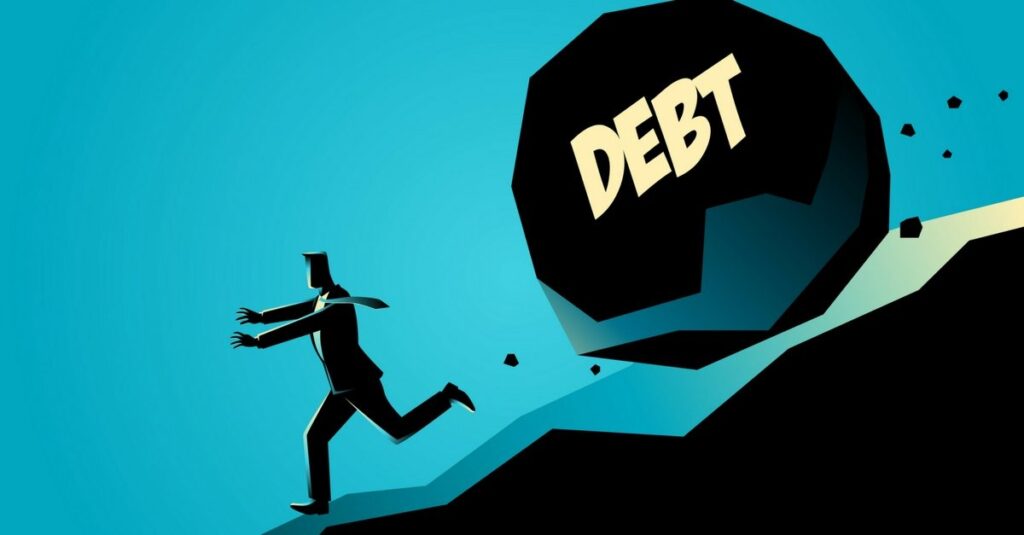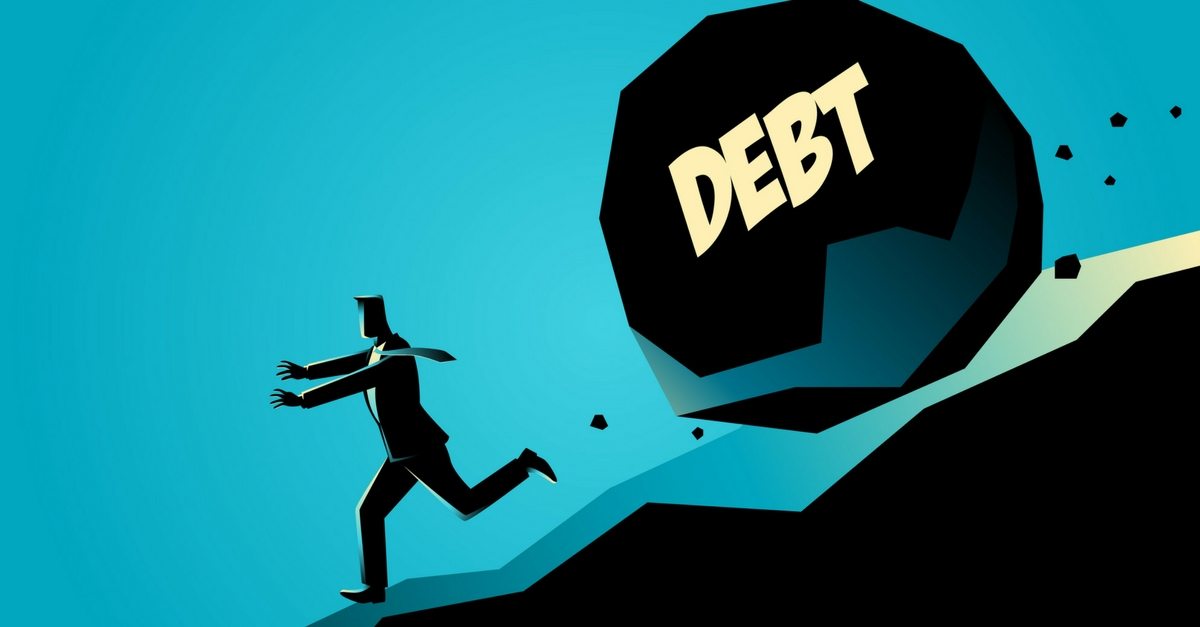Living in debt can be more than just a passing financial concern – it can become a heavy burden, affecting every aspect of your life. It’s not just finances that suffer, but also your mental and emotional health.
The feeling of being trapped in an endless cycle of debt can cause overwhelming emotional distress, leading to stress, anxiety, and even depression. But don’t despair! Even in the most challenging situations, there is a way out.
It is possible to find the path to a healthier and more balanced financial life. In this article, we will delve into the harmful effects of debt and offer effective strategies to organize yourself and get out of the red once and for all. Get ready to transform your financial situation and regain control of your life.

The Malevolence of Debt
Amplified Stress and Anxiety – Debt:
The constant burden of debt is not merely a financial weight, but also an emotional torment. The high levels of stress and anxiety that arise are overwhelming.
This emotional burden can manifest in various ways, from insomnia and panic attacks to more severe mental health issues such as generalized anxiety and deep depression. The chronic stress caused by debt can undermine your ability to function in daily life, affecting relationships, work performance, and overall quality of life.
Paralyzing Financial Constraints – Debt:
Being drowning in debt is not just about seeing red numbers in your bank balance—it’s a financial prison that stifles your aspirations and dreams. Living on a tight budget is not merely inconvenient; it’s an unrelenting reality that drastically limits your life choices.
The lack of room for extra expenses or investments in the future creates a sense of powerlessness and hopelessness.
This inability to progress financially can be devastating, preventing you from achieving vital goals such as buying a home for your family, traveling the world, or investing in education to enhance your career. It’s like being trapped in a financial cage, unable to soar to reach your higher goals and aspirations.
Financial Disaster at Your Fingertips:
The detrimental impact of debt extends beyond your current bank balance; it reaches into your future financial opportunities. Unpaid debts can cause significant damage to your credit score, opening the door to an even deeper financial abyss.
A damaged credit score becomes an insurmountable obstacle, making it difficult to obtain future loans, home mortgages, or even approval for basic credit cards. This vicious cycle of financial disrepute can have devastating long-term effects, blocking your chances of accessing important financing for life projects and significant financial opportunities.
Broken Personal Bonds:
The cracks caused by financial problems are not confined to bank accounts; they seep into every area of life, including personal and familial relationships. Financial tensions can trigger a series of conflicts and strains in interpersonal relationships.
The constant financial stress can turn the family environment into an emotional battleground, leading to constant conflicts, heated arguments, and deep-seated resentments. Romantic relationships can be particularly vulnerable, as financial difficulties become a source of tension and distrust.
Ultimately, unpaid debts can jeopardize the most precious bonds in your life, threatening the stability and harmony of personal and familial relationships.
Comprehensive Strategies for Organizing and Getting Out of Debt:
1. Face Reality Head-On: Facing reality is the crucial first step to liberating yourself from the burden of debt. This means diving headfirst into your current financial situation. Take a thorough inventory of all your debts, from student loans to credit card installments. Note down the amounts owed, associated interest rates, and repayment deadlines. This detailed overview will help create a solid and targeted action plan.
2. Develop a Detailed Budget: Developing a detailed budget is essential to understand where every penny of your money is going. List all your monthly expenses, from fixed bills like rent and utilities to variable expenses like food and entertainment. Identify areas where you can cut back on spending and allocate these resources towards debt repayment, prioritizing an aggressive debt payment approach.
3. Strategically Prioritize Your Debts: Not all debts are created equal. Establish a prioritized order for repaying your debts, focusing first on those with the highest interest rates. By concentrating your payment efforts on debts with higher interest rates, you can significantly reduce the total amount of debt over time, saving money in the long run.
Others strategies
4. Negotiate Intelligently with Your Creditors: Don’t be afraid to negotiate with your creditors. Often, they are willing to work with you to find viable solutions. Explore the possibility of renegotiating payment terms, reducing interest rates, or establishing more flexible payment plans. Be proactive and open to dialogue; negotiation can result in more favorable payment conditions and less financial stress.
5. Consider Debt Consolidation: In some cases, consolidating your debts into a single loan with a lower interest rate may be a viable option. This can streamline the payment process, reduce the total amount of monthly payments, and save money on interest over time. However, it’s crucial to research and carefully compare available options before making this important decision.
6. Seek Professional Guidance: If you’re struggling to manage your debts on your own, consider seeking professional help from a financial advisor or credit counseling service. These experienced professionals can offer specialized guidance and personalized strategies to help you effectively and sustainably get out of debt. Don’t hesitate to seek assistance; it’s a courageous step towards a more stable and secure financial life.
Comprehensive Conclusion:
In summary, breaking free from the clutches of debt is more than just a mere financial goal; it’s a transformative journey towards financial freedom and stability. Although the path may be long and fraught with challenges, it’s important to remember that every step taken towards financial freedom is worth it.
Remember that the process of freeing yourself from debt is often gradual and requires a generous dose of determination and discipline. It’s normal to face setbacks along the way, but it’s crucial to remain committed to your ultimate goal.
Stay true to your solid action plan and consistently work towards reducing your debts, increasing your savings, and improving your overall financial health. Celebrate every small victory along the way and acknowledge the progress you’re making, no matter how small it may seem.
Don’t be discouraged by the challenges and obstacles that may arise. Instead, see them as opportunities for learning and growth. Believe in your potential to change your financial situation and never doubt your ability to achieve your goals.
So, move forward with courage, determination, and confidence. Always remember that you are stronger than your debts and that the financial future you desire is within your reach. With persistence and dedication, you’re on the right path to achieving a more stable, peaceful, and rewarding financial life.




